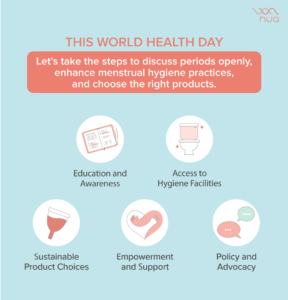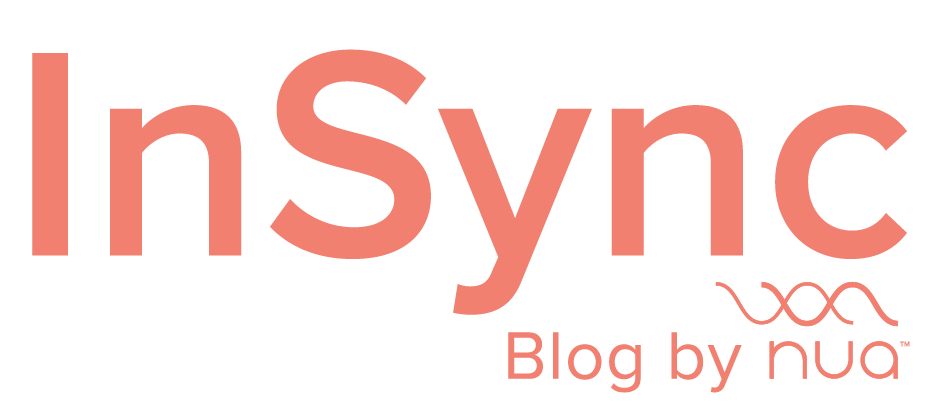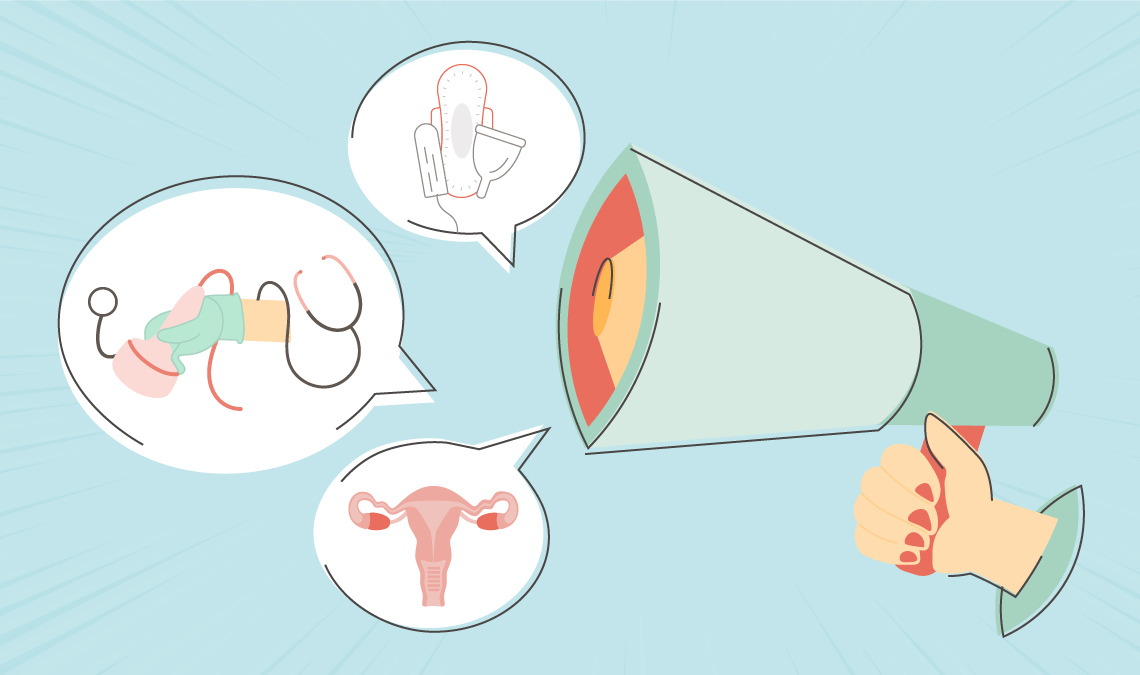As World Health Day 2024 approaches, the theme “My health, my right” resonates deeply with the fundamental principles of human rights and healthcare access. It’s a reminder that everyone, regardless of their background or circumstances, deserves access to quality health services and information. But amidst discussions of broader health issues, there’s one aspect that often remains shrouded in silence: menstruation.
Periods are a natural and normal part of life for half of the world’s population, yet they are still met with stigma, shame, and misinformation in many parts of the world. This World Health Day, it’s time to break the silence surrounding menstruation and address the critical issues of menstrual hygiene and product choice.
Menstrual hygiene plays a crucial role in maintaining the health and well-being of individuals who menstruate. Poor menstrual hygiene practices can lead to infections, reproductive health issues, and even social exclusion. Yet, many people lack access to clean water, sanitary facilities, and affordable menstrual products, making it challenging to maintain proper hygiene during menstruation.
Moreover, the choice of menstrual products also impacts health and environmental sustainability. Traditional disposable pads and tampons are convenient but often contain harmful chemicals and contribute to environmental pollution. On the other hand, reusable options like menstrual cups and cloth pads are eco-friendly and cost-effective but require proper care and maintenance.
This World Health Day, let’s take up the challenge to discuss periods openly, enhance menstrual hygiene practices, and choose the right products for our health and the planet. Here are some steps we can take:
- Education and Awareness: Start conversations about menstruation in schools, communities, and households. Provide comprehensive education about menstrual health, hygiene practices, and product options to dispel myths and stigma.
- Access to Hygiene Facilities: Advocate for improved access to clean water, sanitation facilities, and disposal options for menstrual waste in schools, workplaces, and public spaces. Everyone should have access to the necessary resources to manage their periods safely and hygienically.
- Sustainable Product Choices: Encourage the use of eco-friendly menstrual products like menstrual cups, reusable cloth pads, and biodegradable disposable options. These products not only reduce environmental impact but also promote better health by avoiding exposure to harmful chemicals.
- Empowerment and Support: Create supportive environments where individuals feel comfortable discussing their menstrual health needs and seeking assistance. Empower people to make informed choices about their menstrual health and advocate for their rights to access quality healthcare services and products.
- Policy and Advocacy: Call for policies that prioritize menstrual health and hygiene as integral components of healthcare and sanitation initiatives. Advocate for initiatives that ensure affordable access to menstrual products, promote menstrual equity, and address the specific needs of marginalized communities.

Breaking the silence around menstruation is not just a matter of personal health but a human rights imperative. By challenging stigma, promoting education, and advocating for access to menstrual hygiene resources, we can empower individuals to manage their periods safely, confidently, and with dignity. This World Health Day, let’s commit to making menstrual health a priority for all, because everyone deserves the right to good health, including the right to manage their periods with dignity and respect.








